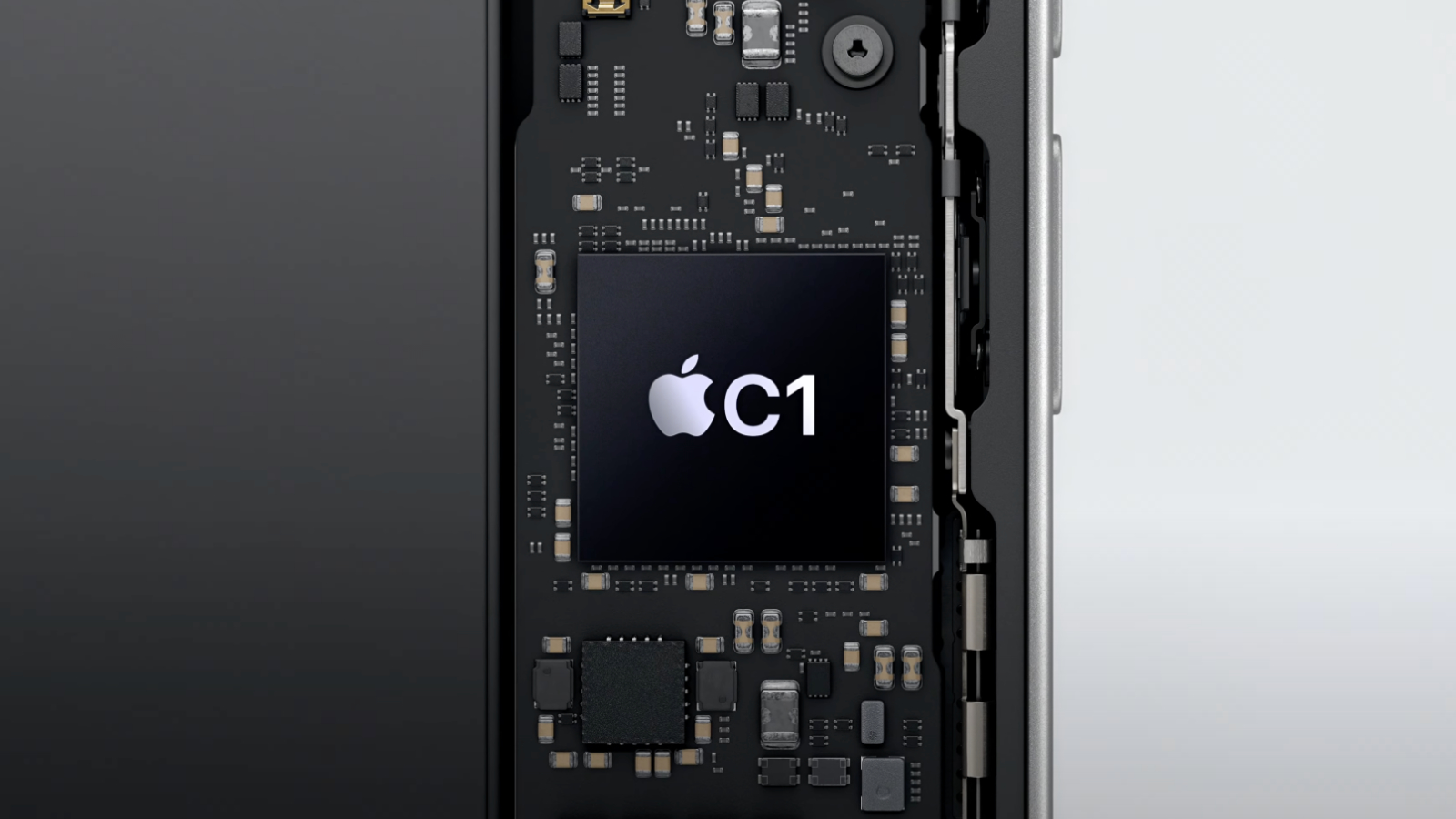
The new iPhone 16e is equipped with Apple's custom-designed C1 modem for 5G and LTE connectivity, whereas all other current iPhone models rely on Qualcomm modems. While the average customer is unlikely to care about this change, it is a big deal for Apple, which had been working on its own cellular modem since at least 2018.

We are still waiting on C1 modem speed tests, but it is expected that Apple's first modem will provide slower 5G speeds compared to Qualcomm's Snapdragon X71 modem in iPhone 16 models. Apple surely aims to eventually catch up to or even surpass Qualcomm in modem performance, but that goal might take several years.
In the meantime, Apple says the C1 modem is already the most power-efficient modem in an iPhone ever, contributing to the iPhone 16e offering the longest battery life of any 6.1-inch iPhone model, including the regular iPhone 16. Apple is known for having excellent hardware and software integration, and this is the latest example of that.
Apple has repeatedly said the C1 modem is just the start. In a press release this week, focused on U.S. manufacturing commitments, Apple heavily implied that it will release additional devices with custom 5G modems in the future.
From the announcement, emphasis ours:
Which devices might get an Apple-designed modem next?Apple C1 adds a new chapter to the story of Apple silicon and is the result of years of R&D investment, bringing together the work of thousands of engineers. Apple C1 is the start of a long-term strategy that will allow Apple to innovate and optimize the modem system for additional Apple products.
According to Apple supply chain analyst Ming-Chi Kuo, the ultra-thin iPhone 17 Air coming later this year will also feature the C1 modem.
In addition, cellular iPad 11 configurations would be a good candidate for the C1 modem. Apple is expected to announce the iPad 11 in March or April.
Beyond that, Bloomberg's Mark Gurman reported that Apple has considered adding 5G modems to future Mac and Vision Pro models.
Apple has publicly acknowledged that it starts developing future A-series processors for iPhones up to four years in advance, and that likely applies to C-series modems as well. Gurman and others have said that Apple is already working on C2 and C3 modems. With the C2 modem, Apple is aiming to add mmWave 5G support. With the C3 modem, Apple is apparently aiming to outperform Qualcomm's modems.
All four iPhone 18 models, and the iPad Pro, could be equipped with the C2 modem.
Further out, Apple is expected to merge the modem into the iPhone's A-series chip.
Why did Apple develop its own iPhone modem? One, it eliminates the risk of relying on an external supplier, especially for single-sourced components like Qualcomm's modems. Second, Apple has had a rocky relationship with Qualcomm. The two companies did settle a lawsuit and extend their modem supply agreement for iPhones through March 2027, but Apple is likely aiming to avoid extending that contract any further.
Apple initially tried to reduce its reliance on Qualcomm by using Intel modems in some iPhone models, from the iPhone 7 through to the iPhone 11 series. However, this was a controversial decision, as tests showed the Intel modems had inferior performance compared to the Qualcomm modems. Apple returned to using exclusively Qualcomm modems when iPhone 12 models ushered in the 5G era, but it also decided to design its own modem as a longer-term solution. In 2019, Apple acquired the majority of Intel's smartphone modem business, and now the C1 modem has finally debuted after years of development.
Eventually, every cellular Apple device will likely have a C-series modem.
Article Link: Apple Says Its 5G Modem Will Come to More Devices, Here's Which Ones
Last edited:
